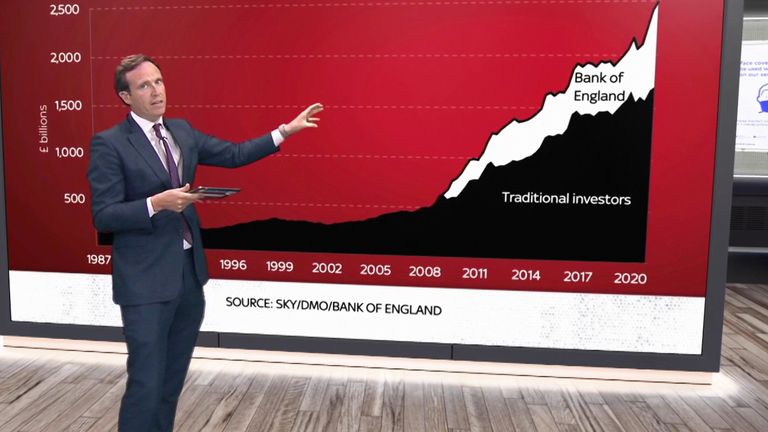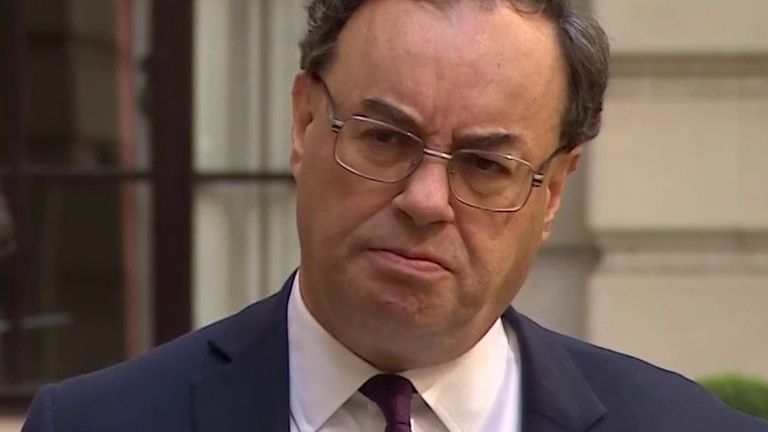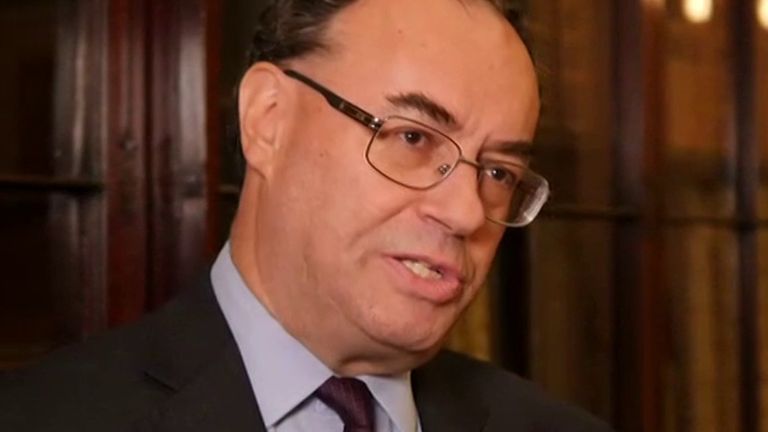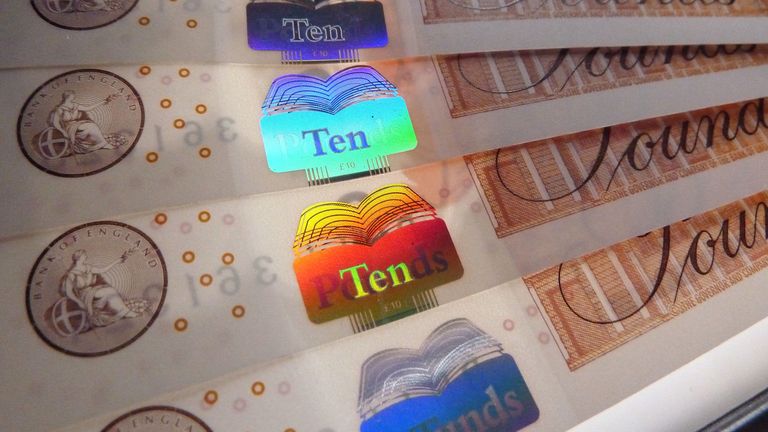Coronavirus: Bank of England expands crisis QE programme to £300bn
Minutes of the meeting showed there was dissent in the ranks as the Bank committee voted to increase its QE target.
Friday 19 June 2020 11:32, UK
The Bank of England has expanded its coronavirus crisis quantitative easing (QE) programme of bond-buying by £100bn - taking the total since March to £300bn.
The move, designed to oil the wheels of financial markets and maintain low borrowing costs, was announced following the latest meeting of the Bank's rate-setting committee, which maintained interest rates at their record low of 0.1%.
There had been speculation, which died away in recent days, that it could have opted for negative rates as a further tool to bolster activity in an economy currently enduring, what is widely tipped to be, the worst recession in living memory following a record collapse in output during April.
The minutes of the meeting showed one member of the monetary policy committee (MPC), chief economist Andy Haldane, voted against the extension of the QE target.
They also highlighted downside risks of a deeper crisis for jobs through higher and more persistent unemployment as employment figures suggest job losses are on course to accelerate as the year progresses and government support for furloughed workers' wages is scaled down.
But the minutes showed too that the Bank's earlier expectations on the extent of the economic shock during the second quarter, had been overplayed - chiming with recent remarks by its governor Andrew Bailey.
Referring to the GDP figures for April, the statement said: "Evidence from more timely indicators suggests that GDP started to recover thereafter."
The extension of the Bank's COVID-19 bond-buying scheme builds on a monetary policy response to the crisis that was first launched in March.
Then, Bank rate was cut to a record low of 0.1% and a £200bn QE programme started. That was on top of its post-financial crisis QE which totalled £445bn.
The asset purchases, as QE is also known, sees the Bank create money to buy up government and corporate bonds in order to help keep wider borrowing costs down at a time when the Treasury is borrowing big to fund its support programmes for businesses and workers.
The rate of the Bank's asset purchases since March was such that the programme would have been exhausted in July without the expansion.
:: Listen to the The World Tomorrow on Apple podcasts, Spotify, and Spreaker
Financial market participants had widely predicted the announcement as the Bank's Monetary Policy Committee is not due to meet again until August.
The Bank said it would slow the pace of its QE so that the latest round would be completed by the end of the year.







